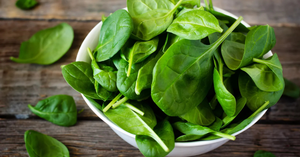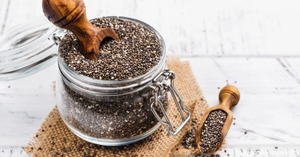The Hydration Challenge
Fasting from dawn to sunset means children go without food and water for extended periods, potentially leading to dehydration. This can be particularly challenging as kids attend school, engage in activities, and try to stay focused throughout the day. Symptoms of dehydration can sneak up quietly, manifesting as fatigue, headaches, dizziness, and difficulty concentrating – all of which can impact a child's well-being and learning experience.
Smart Hydration Strategies
Maximise Non-Fasting Hours: Encourage your children to drink plenty of water between Iftar (the meal to break the fast) and Suhoor (the pre-dawn meal).
Aim for at least eight glasses of water during this time. Make hydration fun by infusing water with fresh fruits or creating colourful ice cubes to add visual appeal.
Hydrating Food Choices: Incorporate water-rich foods into meals. Cucumbers, watermelons, oranges, and tomatoes are excellent choices that not only provide essential nutrients but also contribute to the body's fluid storage.
Consider preparing hydrating smoothies with ingredients like coconut water, bananas, and spinach to boost electrolyte intake and make hydration more appealing to kids.
Strategic Meal Planning
Focus on nutritious and hydrating meals during Suhoor and Iftar:
Suhoor: Ensure a balanced pre-dawn meal with foods rich in protein, complex carbohydrates, and fibre to sustain energy levels throughout the day. Oatmeal with fruits and nuts, whole grain toast with eggs, or yogurt parfaits can be excellent choices.
Iftar: Start with dates and water to kickstart the rehydration process. This traditional practice not only holds spiritual significance but also provides a quick energy boost. Follow with a well-balanced meal that includes soups, fruits, and vegetables to replenish fluids and nutrients.
Avoid salty, spicy, and fried foods that can increase thirst during fasting hours. Instead, opt for grilled or baked options and use herbs for flavoring.
Physical Activity Considerations
Modify physical activities to conserve energy and reduce fluid loss:
Communicate with your child's school about fasting, especially regarding physical education classes. Request modifications or exemptions if necessary.
Encourage light activities like gentle stretching, walking, or yoga instead of intense exercises during fasting hours.
Plan more vigorous activities for after Iftar when your child can properly hydrate.
Recognising Dehydration
Educate your child about the signs of dehydration and encourage them to communicate if they're feeling unwell. Key symptoms to watch for include:
- Excessive thirst
- Fatigue or dizziness
- Difficulty concentrating
- Dark urine or infrequent urination
- Dry lips or skin
Empower your child to listen to their body and understand that breaking the fast is permissible if they're feeling unwell.
When to Seek Help
If your child shows signs of severe dehydration, such as extreme fatigue, confusion, rapid heartbeat, or fainting, it's crucial to break the fast immediately and seek medical attention. Remember, in Islam, preserving health takes precedence over fasting.
Balancing Spiritual and Physical Needs
While focusing on physical well-being, it's essential to nurture the spiritual aspects of Ramadan. Use this time to discuss the deeper meanings of fasting with your children. Encourage acts of kindness, reflection, and gratitude. Help them understand that taking care of their health is part of their spiritual responsibility.
Create a supportive family environment where children feel comfortable expressing their feelings about fasting. Celebrate their efforts, whether they fast for a full day or participate in other ways, like joining in charitable activities or helping prepare Iftar meals.
By implementing these strategies and maintaining open communication about both the spiritual and physical aspects of Ramadan, you can help your child navigate this holy month safely and meaningfully. This balanced approach ensures that they can fully engage in their spiritual journey while maintaining the hydration and energy necessary for their daily lives.








Be the first one to comment on this story.